When reading about guns in the search for the first one that would be perfect for you, an age-old debate comes into question.
Should a beginner start with a traditional, spring-powered gun or a pre-charged pneumatic (PCP) gun?
The battle of PCP vs spring-piston air rifles can be a bit confusing.
People have their own opinions on the matter according to their experiences and needs, but what should a beginner who has not even a rough idea do?
This article will help you out in deciding which one works best for you.

Table of Contents
Spring Piston and its Working Procedure:
Spring pistons are the traditional type of guns that you may have seen commonly used. They are the most basic of guns and are easily available at a low price – hence proving themselves very beginner-friendly.
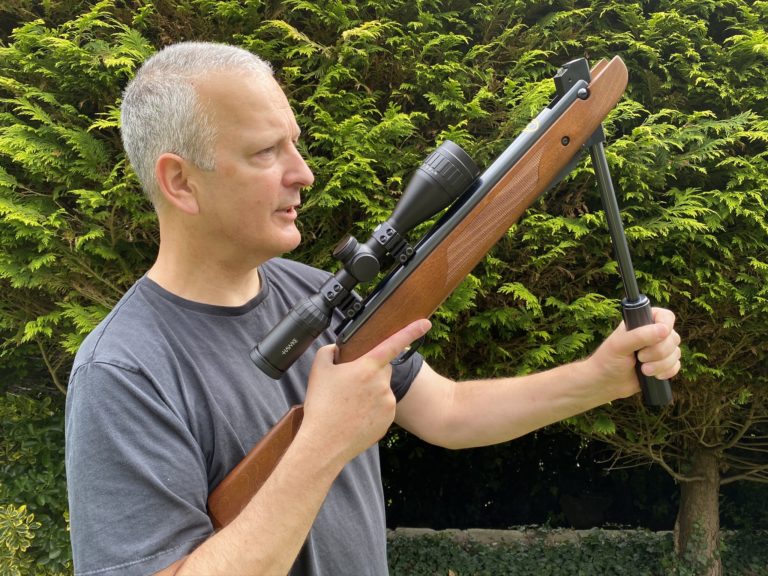
To get a better understanding of the spring piston, let us look at exactly how it works and whether the mechanism will be well suited for you.
- There are two main components inside the gas chamber – the piston and the spring.
- Upon cocking the gun, the spring starts undergoing compression. This compressed gas causes the air stuck behind the piston to start getting pressurized.
- When you pull the trigger, the spring gets decompressed and causes the piston to move forward when the trapped air behind it is released at high pressure.
- The pellet then comes out of the muzzle at full speed due to this pressurized air .
This is how the spring in the system works to fire the pellet inside.
(For more on the best spring air rifles, see this post)
Pre-charged Pneumatic Guns and its Working Procedure
The term ‘pre-charged’ in PCP guns comes from the fact that instead of a regular piston, there is a gas cylinder that is fixed beforehand and does not require continuous reloading.
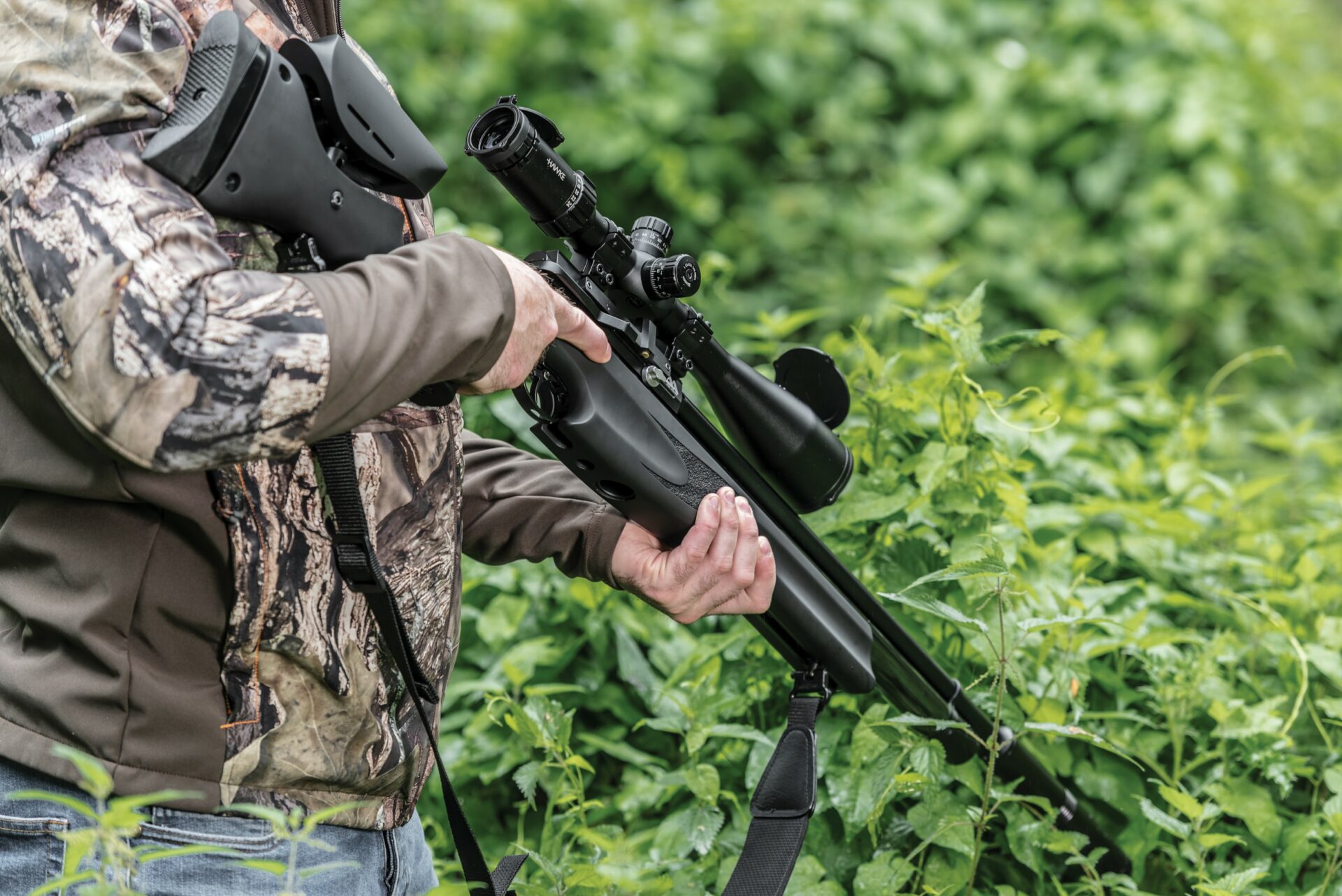
The air inside the cylinder keeps a valve closed which also keeps the air trapped and tight inside the tank. Here is how the procedure works:
- Upon the trigger being cocked, a hammer inside is ready to fall onto a plunger in front of the valve. The valve is pushed to open due to the energy from the hammer .
- After the shot, the pressure in the tank pushes the valve close. In the beginning, the pressures can be high enough to cause the valve to close quickly.
- After each shot, the pressure in the tank is reduced along with the amount of air stored, which will need to be refilled after it has completely been exhausted.
Differences Between PCP vs Spring Piston
The primary difference between PCP vs spring-piston air rifles is the recoiling. Recoiling is the backward and forward movements of the arm caused by the pressure of continuous shooting. There is minimum recoiling and movement in PCP guns, causing them to be very comfortable for their purpose, whereas spring pistons are known for their continuous recoiling.
The spring piston recoiling is at risk of injury from its movements, but it is a common misunderstanding that PCPs do not recoil. Recoil is present in the latter, but the difference in comparison of PCP vs spring-piston air guns shows that the contrast in pressure is huge and greatly affects how you need to shoot the rifle.
A spring-powered rifle needs to be shot in the same manner for maximum accuracy, with the most gentle and perfect grip on it to only ever be truly accurate. When gripped too hard, there can be a difference in recoil which can lead to misfiring and accidents as well. This is the risk that spring pistons pose when not held properly.
A PCP gun, on the other hand, is a more advanced option, so the recoil is minimal and there is better accuracy for the shooter as long as they keep their head and eye position behind the sight remain consistent.
(For more on 5 types of air rifles you need to know before buying, see this post.)
PCP vs Spring: Power
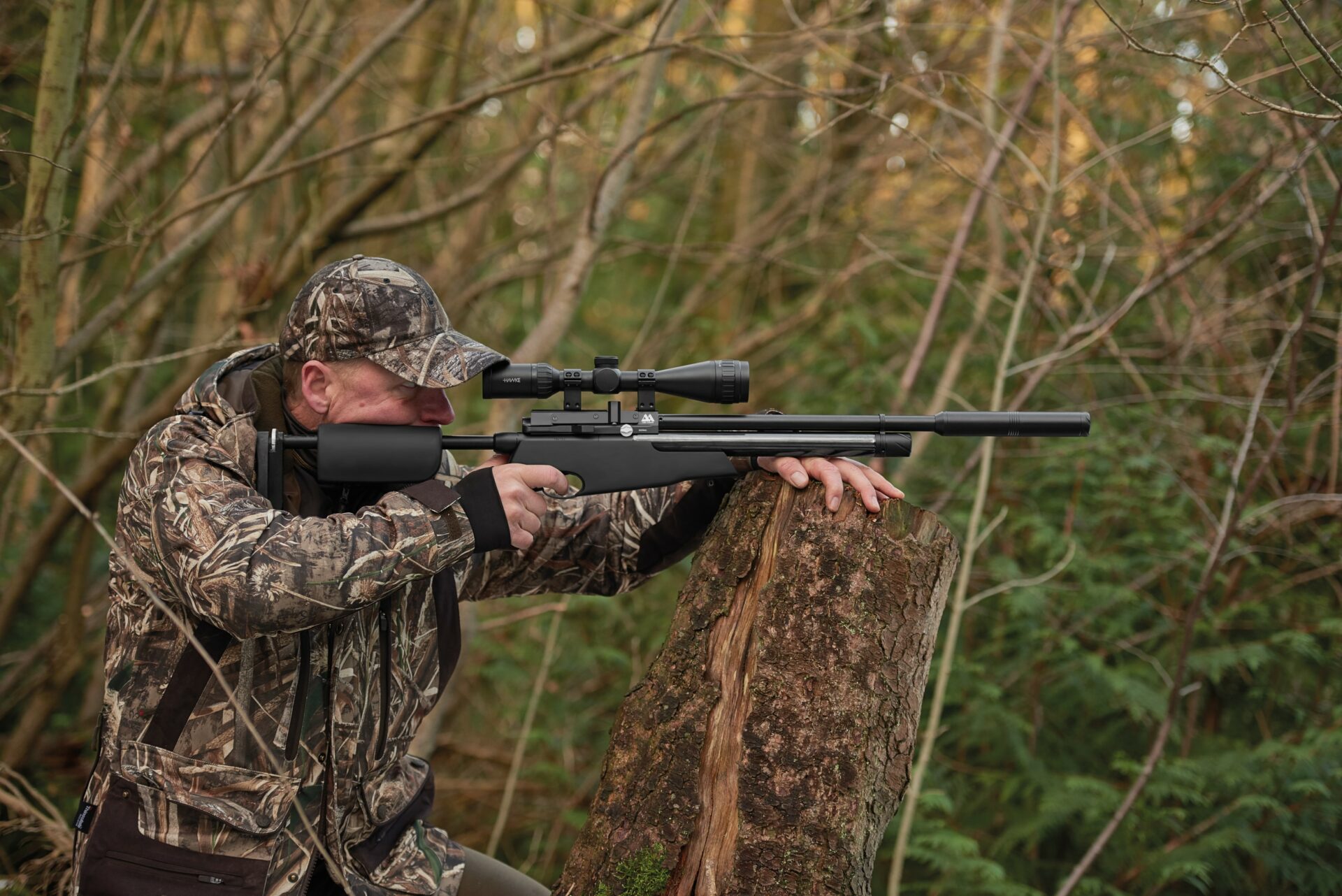
Usually, the muzzle energy that is sufficient for all organized target shooting and hunting sprees is expected to be 12-foot pounds. Though some short-range target disciplines can restrict their muzzle energy to six-foot pounds.
Most PCPs will be adjusted to deliver around 11-foot pounds of muzzle energy or even more! The FPE usually depends on the caliber. For instance, some .25 caliber rifles can deliver up to 50 FPE.
Hence, high-caliber PCPs offer more FPE. Thus, they become ideal for small, medium, or large game hunting.
The air pressure in PCPs is also compressed to between 2700 to 3000 pounds per square inch.
The most common spring-piston caliber for shooting today is still .177 and .22. Depending on whether the hunter is shooting a high-velocity projectile or one with a more arched trajectory, spring pistons give the shooter their choice.
PCP vs Spring: Accuracy
Another misconception about the PCP vs spring-piston debate is that the PCP will be far more accurate than the spring-piston gun.
However, that is not the case and springers are just as accurate as PCPs. They have excellent shot-to-shot consistency and can rival or sometimes even outperform a PCP when their respective muzzle velocity is tested.
Why then, is this debate still prevalent? It mostly comes down to the way the guns are to be used.
Where air pistons require a lot of practice with grip, aiming, and getting used to the recoil, PCPs have covered some of the hard work required to shoot and seem more accurate. It is not the rifle that guarantees the accuracy, but just the way it is being shot.
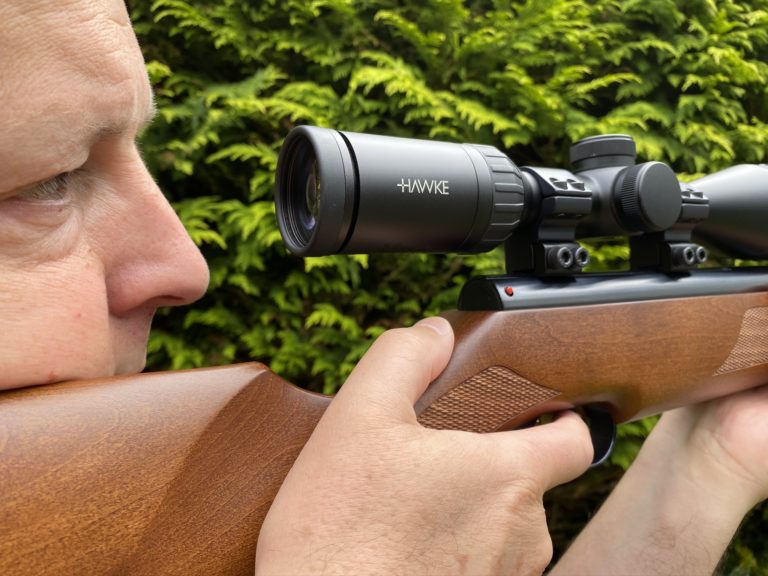
PCP vs Spring: Noise Level
If you wish to practice a lot with your gun, it is important to keep in mind the noise factor of guns as you would not want to disturb the area or catch unwanted attention.
PCP guns have an advantage over their spring-powered rifle rivals as the latter makes a lot of noise upon firing.
The coiled spring inside the spring pistons can lead to more sound when the pellet is released. Hence, they are not very advisable to keep if you want to hunt or practice your shooting skills. The sound may, however, dampen with time.
On the other hand, PCPs are quite noiseless and hence perfect for keeping at home, going hunting, or practicing shooting. The credit goes to the noise reduction system or sound suppression system present in PCPs.
These systems work by creating several air chambers inside the shroud. As the air passes through each one, the air gets stripped away. Therefore, when the air finally comes out, there’s very little noise.
PCP vs Spring: Upkeep Cost
There is a vast amount of PCPs and air-powered rifles to choose from these days, but the cost is not as appealing to the eye as the varieties may be.
Spring pistons are comparatively known to be much cheaper than PCPs, but the gap is narrowing as due to demand for the traditional guns, good spring-piston guns are also in the market at big-budget prices.
However, it is still more economical to start with a spring gun rather than a PCP as PCPs require high maintenance and expenditure for it as well. Besides, some spring pistons offer a degree of high accuracy at a lower price which makes it far more beneficial in the long term.
PCP vs Spring: Which One is Better for Pest Control?
Pests can be troublesome considering they usually come in huge numbers. For this use, a PCP will be more beneficial if you have a whole infestation. They shoot silently and can do the job quicker in case you need to aim or need repeated shots to take care of multiple targets.
However, it would be a rather expensive choice to waste precious PCP ammo on pests as the gun requires high maintenance and frequent charging.
Spring guns, though at risk of hard recoil, are cheaper and can be kept just for pest control as they are always ready to use and would not hurt your pockets for maintenance.
PCP vs Spring: Which One is Better for Hunting Game?
When it comes to choosing PCP vs spring piston pellet guns, most hunters prefer the former due to its obviously advanced machinery with minimal recoiling and sound.
Moreover, PCPs offer excellent power that is required for medium or large game hunting. On the other hand, spring pistons are better for small game hunting only most of the time.
A newcomer in the hunting game would be rewarded more quickly if they start with a PCP, which might ensure that their interest in shooting will remain.
One way to go about it is to master the PCP gun before taking on the challenge that is the spring piston.
Despite being an earlier gun, a lot of hunters still prefer it for its extreme accuracy that comes with mastering the grip and recoiling. The other way around can be done as well, but if you do not know gun holding and its technicalities, it is advised that you go for the safer option.
Conclusion
Considering that PCPs and spring pistons are still the two most widely used and approved hunter guns, there can be no correct answer to which one is better. There are pros and cons of both depending on what your priorities are, so to narrow it down, here is the conclusion.
Pros of buying a PCP gun:
- Constant firing with no recoil problems
- Cocking the gun is easy
- Smooth, soundless shooting with better safety
- Home-house friendly
- Good for hunting
- Powerful for hunting large/medium game
Cons of buying a PCP gun:
- A more expensive choice than springers
- Equipment for charging is needed
- Special maintenance and repair are required frequently
(For more on the best PCP air rifle on the market, see this post)
Meanwhile, to sum up, the pros and cons of spring pistons:
Pros of buying a spring piston:
- Affordable and easy to maintain than PCPs
- No need for charging material
- An average spring gun lasts about a thousand shots before needing replacement
- Good for pest control and one-time use.
Cons of buying a spring-powered gun:
- Recoiling can lower the chances of accuracy
- Cocking can be difficult for smaller-sized guns
- There is an increased recoil at higher power levels
- Noisy and requires a lot of practice
(For more on the best break barrel air rifle that hits like a champ, see this post)







































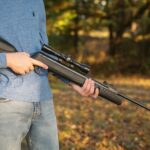

![Air gun 101: The differences between .177 & .22 – Which jobs they do best ? [Infographic]](https://airgunmaniac.b-cdn.net/wp-content/uploads/2024/11/1773-150x150.jpeg)